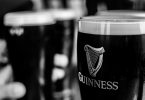Excise tax highlighted at SYL launch
With pubs and pub culture ranking as one of the top tourist attractions in 2016, getting 21% of tourists’ votes, MC for the evening Ivan Yates kicked off the campaign launch by highlighting two official studies into the drinks industry via Ireland’s Hospitality Industry and Your Constituency and another recent report on alcohol and excise tax. In addition, he highlighted the recent Amárach report on the pub as a social hub which was only completed at the start of May according to Amárach’s Chief Executive Michael McLoughlin.The launch of the DIGI-backed campaign in O’Donoghue’s pub on Merrion Row was followed by a brief discussion hosted by broadcaster Ivan Yates, on the economic, social and cultural impact of the drinks and hospitality industry in Ireland with contributions from Irish Tourist Industry Confederation Chief Executive Eoghan O’Mara Walsh, DIGI Chair and Heineken Ireland Managing Director Maggie Timoney, DCU Economist Tony Foley and Fine Gael Councillor and publican John Clendennen of Giltraps pub, Kinnity. The Support Your Local 2017 campaign seeks to highlight the economic, cultural and social contribution of the drinks and hospitality industry to Ireland.
A total of 7,193 pubs, 3,161 off-licences, 2,406 restaurants, 983 hotels, 483 wholesalers and 98 producers purchase €5.7 billion in materials and services, pay €2.9 billion in wages and deliver €6.4 billion in tourism spend each year, in cities, towns and villages.
In welcoming the fourth year of the campaign, DIGI Chair Maggie Timoney highlighted the 210,000 employed in the industry and its €2.9 billion wages bill.
“That’s apart from the €5.7 billion purchases and services input,” she said.
“As we enter a new period of economic uncertainty in the form of Brexit, government and industry must collaborate to ensure that hospitality businesses are protected from the worst of the fallout. At the moment, we’re doing the opposite: local consumers and tourists are being stung by our high alcohol excise tax.
“In the long term this is bad for business. Our hospitality and pub culture is a huge draw for tourists. Ireland’s hospitality sector is heavily reliant on the UK and as price-sensitive British tourists seek out better value with their weaker sterling, we’re hamstringing ourselves precisely at a time when our economy must be as diversified and prepared as possible.”
At €6.4 billion, tourism is a vital component of the economy and she noted that tourism was down 5.5% in Q1 of 2017. Thus it was vital to review our excise rates on alcohol and DIGI would be seeking a reduction in Budget2018.
DCU Economist Tony Foley, who authored two of the three reports, found their most striking feature to be that one was “happy” – the economic contribution of the drinks industry across constituencies – while the other was “sad” – what we’re doing to the economy by our high excise tax rates.
In employment, there had been a renaissance for the craft drinks business, he said, while the government taxed globally-established brands such as Jameson, Guinness and Baileys more highly than anywhere else in the EU with the exception of Finland.
“In 14 countries in Europe, there’s no tax on wine yet we tax our strong indigenous sprits and beers including those which have been here for hundreds of years,” he pointed out, “We need to foster our local industries to the maximum extent. Excise is something we control ourselves, it’s our decision, not that of Brussels, but we decide.”
Otherwise, he was happy to note that the industry produced jobs in “every parish in the country but apart from the 9% VAT on food, we treat the sector quite badly in terms of taxes and at €1.25 billion, that tax take was up 5% from last year – that’s €400 in tax per drinking adult in the country”.
Irish Tourist Industry Confederation Chief Executive Eoghan O’Mara Walsh agreed that tourism was down in Q1 which was important as some 40% of our tourist visitors came from the UK.
“That’s why we need to be competitive on drinks prices,” he added, “Tourism is our biggest indigenous employer at 220,000 in restaurants, pubs, hotels etc – it’s bigger than construction and agriculture and it cannot be outsourced.”
2016 had been a record tourism year worth over €8 billion. Some 9 million visitors had come here but our trading relationship with our nearest neighbor, the UK, is changing fundamentally, he said, predicting that, “The chances are that the value of their spend has fallen further again since. We need more resources put into tourism and it’s also vital that we stay competitive and not out of kilter with our neighbours.”
John Clendennen, proprietor of Giltraps pub in Kinnity, County Offaly and a Fine Gael Councillor there spoke of the importance of the drinks industry to rural Ireland, stating, “A reduction in excise would not only allow us to remain competitive but it would allow us to resource training of staff etc as it’s essential that we continue to provide a quality service”.
MC Ivan Yates added that in some cases there were not a lot of alternative employments out there.
In the Questions & Answers session that followed, Maggie Timoney alluded to the reality of alcohol abuse as the “dark side to the industry” but she also pointed out that, “excise is a blunt instrument – it can be raised to the highest in Europe but will not make a dent in the consumption of alcohol here.
“We need to change the behaviour associated with alcohol abuse in Ireland.
“On behalf of DIGI and of Heineken Ireland I can say that if misuse is reduced and we sell less product, we’ll have succeeded. It’s about behaviour change. It’s vital that young people understand the dangers of misuse and delay their first drink.
“If this can be done, Ireland will have a better relationship with alcohol. I ask that the government does not make excise a blunt instrument for tackling alcohol abuse but works together with us on changing behaviour”.
As part of the launch of its new Support Your Local campaign for 2017, the Drinks Industry Group of Ireland commissioned a new report, Hospitality Sector Related Employment in Dáil Constituencies and Counties, authored by DCU Economist Tony Foley.
The report examines the economic, social and cultural contribution of the drinks and hospitality sector across Ireland.
The sector generates a national wage bill of €2.9 billion, purchases of €5.7 billion of materials and services inputs (including over €1.1 billion of Irish produce annually) and supports tourism expenditure of €6.4 billion.
92,000 people work in the drinks industry alone, as proprietors and employees of pubs, off-licences, manufacturers and other hospitality businesses. The combined hospitality sector employs almost 210,000 people across the country or 10% of all jobs and the drinks industry exports over €1.25 billion-worth of produce.
It provides over €2.3 billion-worth of excise and VAT income to the State as well as hundreds of millions in income tax, PRSI receipts and trax on profits every year,
In her comment on the findings of the report, DIGI Chair Maggie Timoney pointed out, “Although tourism numbers remain strong, we have seen a sharp decline in British visitors of around 6.5% compared to the same period in 2016, following Brexit. This is a concerning trend for the sector – over 40% of our overseas visitors originate from the UK”.
DIGI, through the Support Your Local campaign, believes that the government should reduce excise tax to support jobs and tourism.








